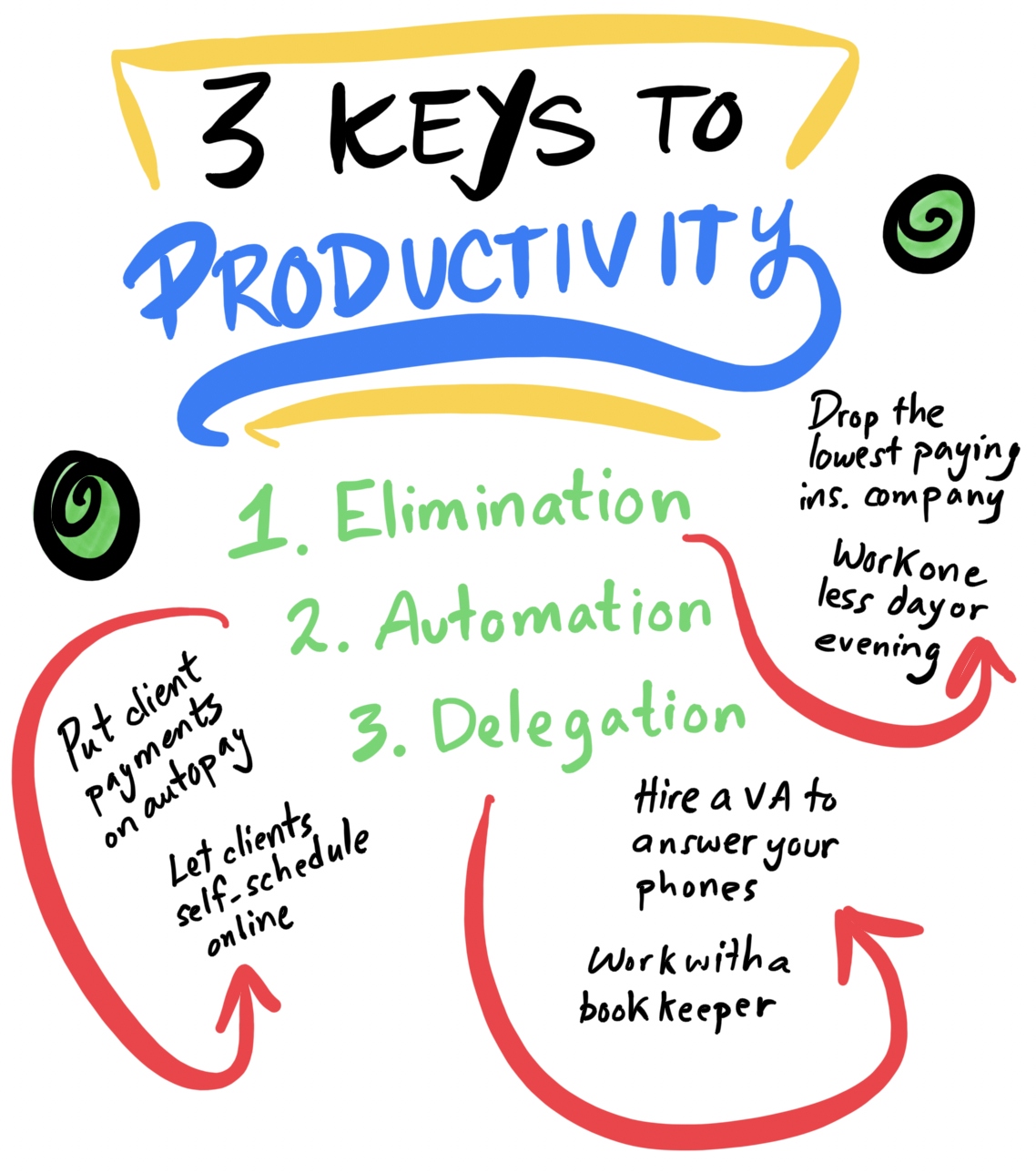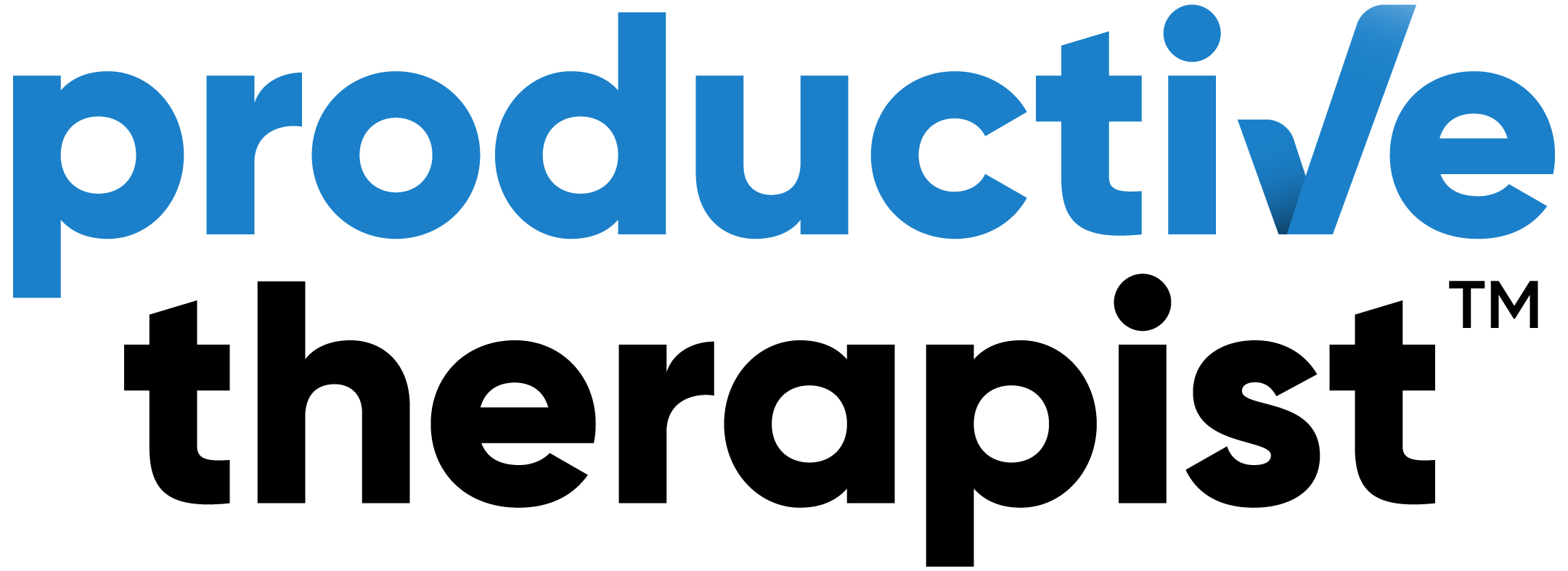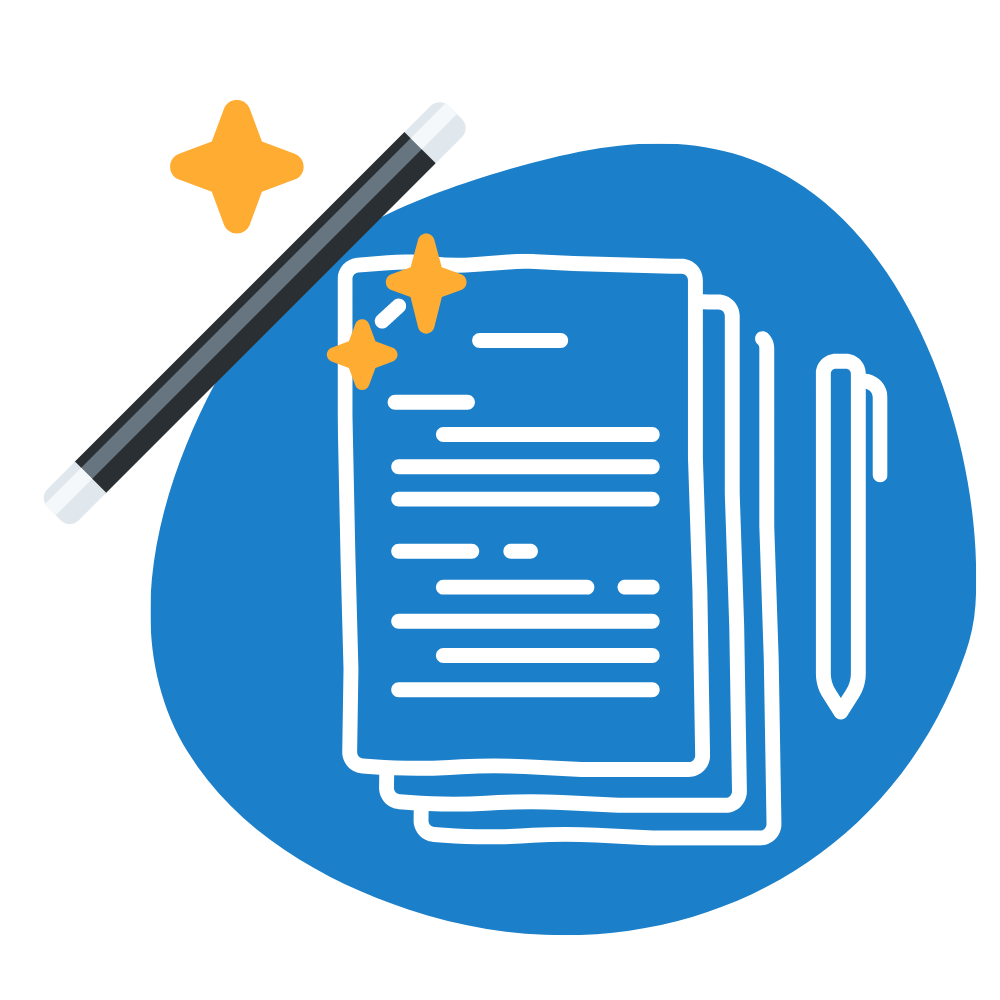The 3 Keys:
- Elimination
- Automation
- Delegation

Full episode transcript:
Uriah: Hello I’m Uriah and this is The Productive Therapist Podcast. We provide World-Class Virtual Assistance for World-Changing Therapists, and practical tips on productivity, outsourcing, and building a business and a life that you absolutely love. I’m super excited to be here again with my co-host Tracel Callahan, who is our Account Manager and Former 911 dispatcher. Hi Tracel.
Tracel: Hi, how are you?
Uriah: I’m good, (laughs) how long did you do that job for?
Tracel: Oh, 10 and 1/2 years.
Uriah: Did you really? Oh my goodness!
Tracel: Yes, yes.
Uriah: That is a long time. Have you heard…
Tracel: It is…
Uriah: …of this TV show, called “Reno 911”
Tracel: (laughs) I have, I have not ever seen an episode of it…
Uriah: You probably-you probably, don’t want to watch it with your history.
Tracel and Uriah: (laugh)
Uriah: It’s actually quite good, it’s a-it’s a good show. So I’m-I’m wondering what for you, I’m sure in that role, you were very productive and had to be like multitasking and on top of things, but now in your day-to-day life, what helps you be productive?
Tracel: I am still really old school, so I have a list, pen and paper that I still use. I have a calendar that I kind of time-block-in things that I have to do every single day, certain things that are scheduled on the same time or on the same day every week…
Uriah: Right.
Tracel: …so, and than I do little bit of, you know, maybe a digital calendar, but most of it’s pen and paper.
Uriah: That’s amazing, and it hasn’t failed you yet right?
Tracel: No, (laughs)
Uriah: (laughs)
Tracel: Along as I remember to write something down.
Uriah: True , I live and die by my To-do, by my to-do list for sure and I’m always looking at it on my phone and on my computer keeping track of things, for me If I- I mean it doesn’t really matter if you use paper and pen or you use a digital solution, but for me getting those ideas, and um, whatever pops into my mind-out of my mind and onto-into some sort of other format where I can come back to it later…super helpful.
Tracel: Yeah, sounds good
Uriah: So, today we’re going to talk a little bit about the 3 Keys to Productivity, and we can do a whole episode and more on each one of these, but we’re gonna touch on them briefly. And, the first one is “elimination”, the second one is “delegation”, and the third one is “automation”. And the order here doesn’t matter, but I think that they’re all pretty powerful principles if you break them down, we’re gonna give a couple examples of-of each one of these. So, the first one “elimination”, you can probably guess what that is…
Tracel: Yes, getting rid of stuff you don’t need.
Uriah: Exactly, and we all have this, umm, and it takes the form of things that we think we should do, or we’re supposed to do. Umm, but the reality is is if that you think about it, it’s not actually moving forward our goals or bringing us any noticeable results. And, uh, I think, I mean everybody’s-everybody could have different examples of this, but for me sometimes in the past it’s been umm spending time posting on social media, has been something that wasn’t worth my time, and I decided to stop doing it all together at different times.
Tracel: A lot of people feel that way.
Uriah: Yeah, you know I mean I think that’s happening a lot with therapists. I do think there’s a lot of value in social media, but sometimes we think that we must do it, but it’s not always the case. And for me, also attending networking events, is something that I generally try to avoid doing, and really the idea here is that any task that’s on your list that you find yourself kind of advancing and pushing forward and not completing, I’m sure we can all relate to that to some degree right?
Tracel: Right.
Uriah: Um, you look at your list and you’re like “ahhh, I’ll just-I’ll do that tomorrow”, procrastinating.
Tracel: Right, right.
Uriah: I mean sometimes we procrastinate the things that are really important, but a lot of times that is information that it’s actually not critical. Right?
Tracel: Yes.
Uriah: Can you think of anything on your list that you’ve eliminated and felt better about?
Tracel: Umm. let’s see… No, there’s something,- I mean I probably need to do some thinking about that…
Uriah: (laughs)
Tracel: ..and I’m sure there’ s things that I could eliminate that would make my life easier.
Uriah: (laughs) tomorrow morning first thing…
Tracel: that’s right (laughs)…
Uriah: …review To-do list…
Tracel: that’s right (laughs)…
Uriah: …and eliminate one thing, yeah.
Tracel: (laughs)
Uriah: the one thing that I’ve done recently that’s making the biggest difference is I’ve eliminated checking e-mail before 10 o’clock in the morning.
Tracel: Ah.
Uriah: And I’m having my assistance Jaime take care of that and just make sure that nothing’s critical. And I can’t tell you how much of a difference it’s made, because I basically would wake and one of the very first things that I do is check my e-mail. And guess what that would almost always derail me in one direction or another, such a huge difference.
Tracel: Ah, anytime you can, umm, kind of chunk things together, umm, that’s gonna save you a lot of time, if you just decide 2x/day maybe to look at your e-mail, it could be very helpful.
Uriah: For sure. I’m trying to do it about 3-4, and I’m doing pretty good…
Tracel: (laughs)
Uriah: …but I’m telling you it takes quite a bit of discipline.
Tracel: I bet (laughs)
Uriah: It does. So the next one is “delegation”, this is something we love to talk about. And, it’s critical, I say “delegation” is the key to your freedom. I don’t know if I made that up, but it sounds good… (laughs)…so the idea here is to delegate anything that you’re either not really good at or that you don’t particularly enjoy. So, you need to focus on tasks that only you can do and that bring-in the most money or move you towards your goals. And, can you think of any examples for like the therapists that are listening? What- what do you think those things might be?
Tracel: Umm, for some people it’s social media, they know that it’s important, but they usually don’t have time to get to it or maybe they don’t feel particularly creative….
Uriah: Mm-hmm
Tracel: …Umm, but even some administrative tasks, things that are necessary, umm intakes…intake phone calls specially,…
Uriah: Mm-hmm
Tracel: …umm, they may enjoy doing it, but they just maybe they’ve gotten so busy that they don’t have time for it anymore, that’s a super easy thing to delegate to somebody else.
Uriah: Absolutely. It’s not a bad idea to make a short list of things that you know shouldn’t be doing….
Tracel: Right.
Uriah: …and than a list of things that you must do. I think that we recently heard that called “The Big 5”, right.
Tracel: Yes
Uriah: ..the 5 things that you really need to focus on…
Tracel: Yes
Uriah: …so, I mean for a lot of therapists it definitely is seeing clients, that is the best use of their time, and probably some business-growing,-you know, business-growing and marketing tasks as well…
Tracel: Mm-hmm.
Uriah: My short list, for things to absolutely delegate and never- try to never do..uhh boo-keeping is one of those…
Tracel: Right.
Uriah: …I just don’t, I-I’m not interested and I don’t find that I’m not particularly good at it, but it’s super important so I delegate that. And insurance billing is something that I never wanted to be an expert on (laughs)…
Tracel: Mm-hmm…
Uriah: … and than the last one is, I know it keeps coming up, but social media. Umm, I enjoy social media, but for some reason it just doesn’t excite me to go and create content for social media and constantly being-keeping up with that. So I get people to help me with that and it works out so well.
Tracel: Right, it’s one of those necessary evils, you have to have a presence, but to be able to have the time and skill to do it, you don’t always have those things.
Uriah: Definitely-definitely, and if it doesn’t excite you, I mean that’s information that…
Tracel: Right
Uriah: … you know if you feel like it’s important for your business, umm, find somebody to help you do it, right?
Tracel: Exactly, yeah.
Uriah: And then the last one, and this one can be really fun, uhh, is “automation”. And the idea here is that anything that you can put on auto-pilot, so you don’t have to worry about it, is honestly even better than delegation. Because delegation requires some additional steps, maybe somebody- most likely somebody else to accomplish the task, however, the things that you automate, unless the technology breaks, right? Umm…
Tracel: Right
Uriah: … it just just happens. And there’s a couple of examples that come to my mind are, using autopay on Simple Practice…
Tracel: Mm-hmm
Uriah: …umm, which automatically charges credit cards overnight, and that’s a really nice thing…
Tracel: Right
Uriah: …as long as you pay attention to a few things, and make sure that the information on the calendar is correct, umm, the payments are taken care of and you wake up the next morning, and it’s all done.
Tracel: Right
Uriah: No-no uh other extra steps required, which is beautiful.
Tracel: Mm-hmm. I think there’s a lot of places, even outside of business, that you can automate your life and make things a little easier, that just made me think of a bill-pay, or something like that…
Uriah: Right
Tracel: …for our own personal finances and that makes a huge difference.
Uriah: Good example, automatic bill-pay is a really good one.
Tracel: Mm-hmm
Uriah: I have my rent check, my lease check for the office space automatically goes out from the bank once a month on a-on a schedule and I don’t have to do that, which is really nice.
Tracel: Yeah.
Uriah: Because, I mean who wants-who wants to lick stamps? Or lick a envelope anyways, right?
Uriah and Tracel: (laugh)
Tracel: That’s true, or right checks, who does that anymore ?
Uriah: Oh, every once-in-awhile I have to write a check, I just feel like it’s the hardest thing I’ve ever done.
Uriah and Tracel: (laugh)
Uriah: No (laughs)
Uriah: Two other quick examples to mention and umm everyone can think about this and it might take a little bit of thought to consider what we can automate, but a couple of examples are, we have talked about this before in previous podcasts episodes, online scheduling for the initial client call, really nice to do that..
Tracel: Yes.
Uriah: Umm, it eliminates the back-and-forth phone tag…
Tracel: Mm-hmm
Uriah: …and you might not think about this as automation, but it actually is, if you create recurring task reminders umm, in-you know- some sort of a digital task manager, than that task comes back on a regular basis, and reminds you that something needs to be done…
Tracel: Yes.
Uriah: …uh, which is one of the downsides of paper…(laughs)
Tracel: That is true
Uriah: … you can’t quite do that right?…Umm..
Tracel: You have to write it again, and again, and again…(laughs)
Uriah: Sure, sure. So I have a number of those things that pop-up every week that remind me “Oh don’t forget to do this” you know, “Finish your notes from previously in the week”, those type of things.
Tracel: Right.
Uriah: So that’s a little-little bit of automation, at the of the day the truth is, the more that you eliminate, delegate, and automate, the more you can feel productive and feel like you’re using your time wisely. So if you’d like more tips on improving your skills of delegation, take a look at our newest course, called “Master of Delegation”, you can check out our whole library of courses at productivetherapist.com/learn. Thanks for listening, have a good one Tracel.
Tracel: You too.

